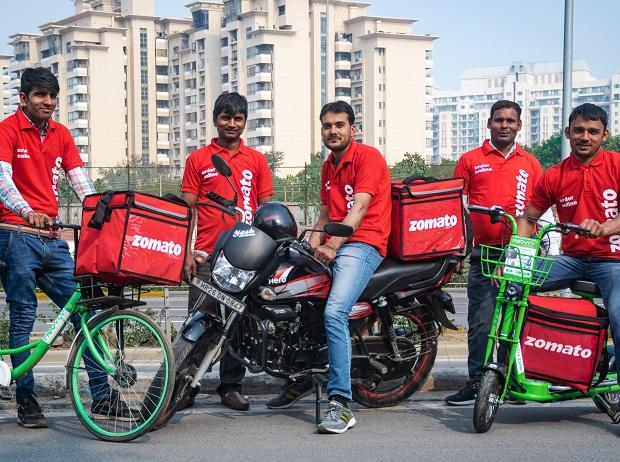|
Zomato IPO: How do Indian food delivery players match up to global peers?
While there are a lot of questions on the minds of investors with respect to the medium-term growth, profitability & cash usage, FOMO factor should keep the excitement level high
 Labelled as a watershed moment for India’s venture capital and start-up ecosystem, Zomato’s Rs 9,375 crore initial public offer (IPO) will open for subscription on July 14 and is likely to draw a bumper response. Labelled as a watershed moment for India’s venture capital and start-up ecosystem, Zomato’s Rs 9,375 crore initial public offer (IPO) will open for subscription on July 14 and is likely to draw a bumper response.
Zomato, which has a presence in 525 cities in India with an average of 6.8 million customers ordering food every month, is being valued at $8 billion, or just under Rs 60,000 crore at the upper end of the price band of Rs 72-76.
While most analysts have already raised concerns on the IPO's premium pricing (around 11 times its FY24 enterprise value to sales) that may leave very little on the table for investors post listing, Zomato is not the only player across the globe that is still Ebitda (earnings before interest, tax and depreciation allowance negative), suggests a report from Jefferies. Back home, while Swiggy is Ebitda negative besides Zomato, San Francisco headquartered Uber Eats and Germany-based Delivery Hero, according to the Jefferies note, are also sailing in the same boat.
Simply put, earnings before interest and taxes (EBIT) is an indicator of a company's profitability and is calculated as revenue minus expenses excluding tax and interest. EBIT is also referred to as operating earnings, operating profit, and profit before interest and taxes.
Growth opportunity

While there are a lot of questions on the minds of investors with respect to the medium-term growth, profitability & cash usage, the fear of missing out (FOMO) factor should keep the excitement level high, analysts say.
With $1.5-2 billion annual GMVs, Indian aggregators are fairly small versus global peers. Average order values (AOVs) are fairly low in developing countries where Zomato, Swiggy, ifood (Brazil), Meituan (China) and Delivery Hero have a presence, the report suggests.
GMV comparisonGMV comparisonFY21 business was impacted due to the pandemic but there has been a steady recovery. FY21 food delivery gross order value (GOV) ended at $1.3 billion compared to $1.5 billion in FY20, with YoY growth in H2FY21. The pandemic led to a sharp rise in average order value (AOV) along with higher delivery charges in FY21, which resulted in a positive contribution margin in FY21.
That said, there is ample scope to grow going ahead. Food Services is a $65 billion market opportunity in India, as per Redseer, growing at 9 per cent per annum and likely to reach $110 billion by 2025. Within the food services market of $65 billion, online delivery forms only a small subset with a market size of $4.2 billion (6-7 per cent). Hence, there is also an opportunity for online delivery to gain share within the growing food services pie. Only 9 per cent of Internet users in India are currently ordering food online, according to estimates, versus 36 per cent in the US and 50 per cent in China.
“Food Services in India is highly under-penetrated vis-à-vis other countries. This is evident in the fact that while food consumption expenditure in India stands at $670 billion per annum, only around 10 per cent of it is spent on restaurant food, while the rest is driven by home-cooked food. In contrast, 54 per cent of food consumption spends in the US and 58 per cent in China comes from restaurant food,” the Jefferies note said.
"We are positive on the Foodtech market and forecast a revenue potential of $6.5 billion by FY30F and assign a market value of $18.5 billion to the food delivery market. This assumes: 1) 20% CAGR in monthly transacting users, at around 87 million, 2) ordering frequency to improve to around 5.5 (vs 4 in FY21F), and 3) average order value CAGR of close to 2%. These should result in a GMV of around $33 billion by FY30F, assuming a 20% stable take rate, implying a revenue pool of $6.5 billion. We assign a ~7x sales multiple and a discounting factor of ~14% to arrive at a market value of $18.5 billion" wrote Rishit Parikh of Nomura in a July 10 note.
- BS
|